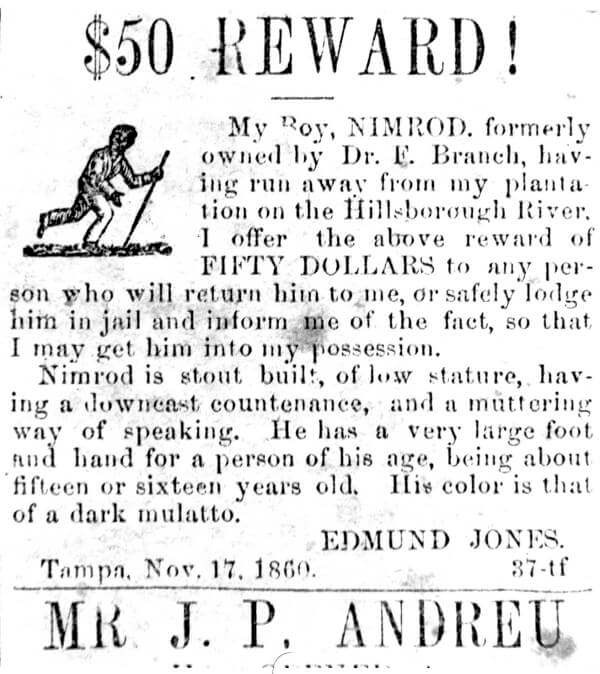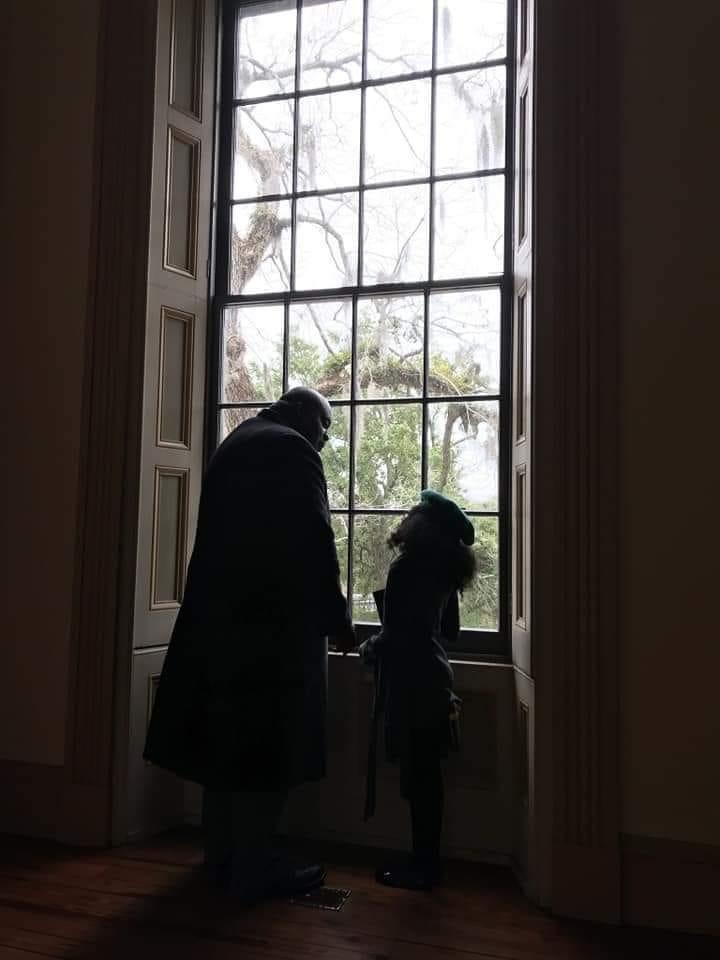The City of Tallahassee's Union Bank, founded in 1833, had its first formal building constructed by enslaved Blacks in 1841 strictly to serve local white plantation owners and their interests.
Tallahassee, Florida's Union Bank served the financial interests of white slave owners from 1833 to 1843.
Per custom, many white slave owners in the Tallahassee/Leon County area who actively profited from buying and selling enslaved human beings stored their financial assets at the Union Bank, while using the bank’s services to borrow against their human "property," as well as to secure mortgages for their stately mansions and homes. That was until 1843, when the Union Bank suddenly closed…
Notice for an auction of enslaved Blacks “owned” by the late Benjamin Chaires in Tallahassee/Leon County…
The Union Bank building lay dormant for over two decades, right through Florida's secession from the United States and alliance with the Confederate States of America from 1860 to 1865. During this period, Tallahassee, one of two Confederate State Capitals that was not occupied by Union troops during the Civil War (Austin, Texas being the other), was home to approximately 9,000 enslaved Blacks—three times the number of whites in the area!
Statewide, by 1860, 44 percent of Florida’s residents were enslaved Black men, women, and children, a fact that counters the silly notion that I read quite often that Florida “was not like the other Southern states.” Indeed, it was…
During the Reconstruction era that followed the Civil War, the vast number of local Blacks made Tallahassee a perfect location for Freedman's Bureau services, one of which included the Freedman's Savings and Trust Company, a corporation that provided banking services—including loans—to its Black customers until 1879.
Tallahassee's Union Bank building, shown in its dilapidated state circa 1969, housed the Black owned and operated Freedman's Savings Bank during the late 1860’s until 1874, when it closed.
Nationwide, by the early 1870’s, the Freedman's Savings and Trust held assets totaling nearly $4 million dollars, but when the economic panic of 1873 rocked the nation, the Black owned bank suffered just as greatly as its predominantly white banking counterparts. In 1874, former abolitionist and statesman Frederick Douglass was named the bank's president and upon installment, he deposited $10,000 of his own dollars as a show of confidence in the bank's future.
Frederick Douglass, a human and civil rights legend, was the last president of the Freedman's Savings Bank
But as this was nearly seventy years before the Federal Deposit Insurance Corporation (FDIC) was formed under Franklin D. Roosevelt’s “New Deal,” individual Black investors and depositors were left unprotected, thus, when the Freedman's Savings and Trust finally folded in June of 1874, nearly 61,000 recently freed Blacks lost ALL of their hard earned earnings and savings!
After the national Freedman's system went insolvent, the Tallahassee Branch building eventually became a coffee shop, a beauty salon, a church, and finally, an abandoned building, as shown above circa 1969.
Cognizant of its interesting history, in 1971, the State of Florida bought the bank building and saved it from demolition, eventually moving the structure to its existing spot near Florida's Capitol Complex. Today, the edifice is home to the Meek-Eaton Black Archives Research Center and Museum, so named for legendary Florida A&M University (FAMU) History Professor James Eaton (RIP), and an equally legendary FAMU alumna, the late U.S. Rep. Carrie Meek.
On a personal note, four years ago (and barely two weeks before the Coronavirus pandemic shut down the world), my daughter, Corrin, won first place honors in the Eva B. Mannings "I am Black History" Essay Contest, one named for a beloved local educator who taught my mother and thousands of other children during the Jim Crow era. The picture below, captured by the event's photographer (unbeknownst to us), depicts me giving Lil’ Hobbs a quick pep talk near a window in the renovated Union/Freedman's Savings and Trust Bank—right before she presented her essay to the warm crowd ❤️.
Lest we forget...









